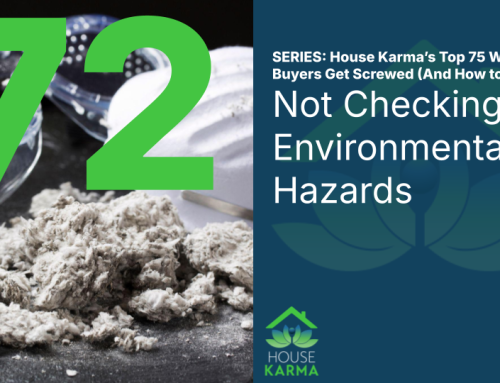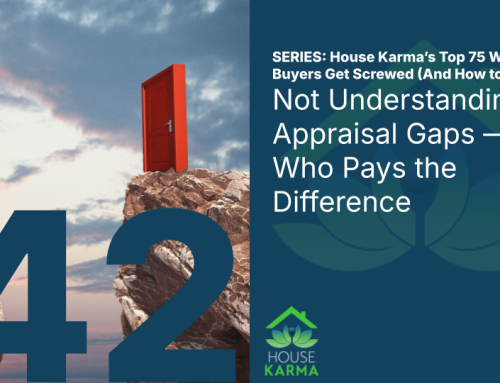And Why “Price Per Square Foot” Is Lying to You
So you found the perfect home. You’ve got your offer accepted, loan pre-approval in hand, and you’re cruising toward closing. Then—boom-the appraisal drops.
Suddenly, the bank says the home isn’t worth what you offered. Your loan shrinks. Your dream home feels like it’s slipping away. Welcome to the world of real estate appraisals, where one person’s opinion can make or break your deal.
Let’s break it down and give you the truth, House Karma style.
What Is a Home Appraisal, Really?
An appraisal is a licensed appraiser’s official opinion of value. It’s not a guess. It’s not a hunch. It’s a formal document backed by data, guidelines, and federal standards (USPAP). It tells your lender, “Yes, this home is actually worth the loan amount you’re about to give this buyer.”
Spoiler alert: if the home doesn’t appraise for at least the contract price, the bank isn’t going to give you the loan you expected. That’s when things get tricky.
What Happens When the Appraisal Comes in Low?
This is called a short appraisal, and it can absolutely derail your deal. Here’s what could happen:
- You pay more out-of-pocket to make up the difference.
- The seller agrees to drop the price (they usually won’t unless the market is soft).
- You walk away from the deal, disappointed and possibly out a few hundred bucks.
Can you fight it? Sometimes. Some lenders allow a second opinion or review. Others, especially on FHA loans, lock in that appraised value for 120 days—no do-overs.
So, if you’re using FHA or VA, know this: that appraisal is final, and it sticks.
Appraisers Do More Than Assign Value
Yes, they do the math—but they also physically inspect the home. That includes photos, verifying room counts, and, for government-backed loans, checking basic safety and livability.
We’re talking:
- No broken windows
- Working heat, water, and electricity
- No exposed wires or tripping hazards
- All appliances functioning
But don’t confuse this with a home inspection. Appraisers aren’t crawling into attics or checking for termites. That’s your home inspector’s job. You need both. Always.
Price Per Square Foot: Don’t Fall for It
Here’s a truth bomb: price per square foot is a terrible way to judge a home’s value.
Yes, it’s easy to calculate and MLS systems love to show it, but it’s wildly misleading. Two homes can be the same size and age, but one backs to a golf course and the other faces a freeway. Think they’re worth the same? Nope.
Use it as a loose guide, not a valuation tool. Don’t shop like a spreadsheet—shop smart.
Who Pays for the Appraisal—and Is It Refundable?
You do. Usually upfront, and it’s non-refundable. For most homes, you’re looking at $750 to $1,200. Bigger or more complex properties? It could be way more.
And here’s the kicker: if the deal falls apart, that money is gone. No credit. No refund. You paid for the appraiser’s time, even if you don’t get the house.
Final Thought: One Opinion, But It’s the One That Counts
You could send three appraisers to the same house and get three different values. That’s not shady—it’s just how the system works. It’s an opinion, but a highly informed one. And when it comes to your loan, it’s the only opinion that matters.
So be prepared. Get educated. Ask questions. And don’t skip your home inspection just because someone signed off on “habitability.”
House Karma is here to help you navigate this stuff with your eyes open and your guard up. Because buying a home isn’t just a dream—it’s a strategy.
Want more insider tips like this? Sign up here to get the facts no one else is telling you—delivered straight to your inbox.







